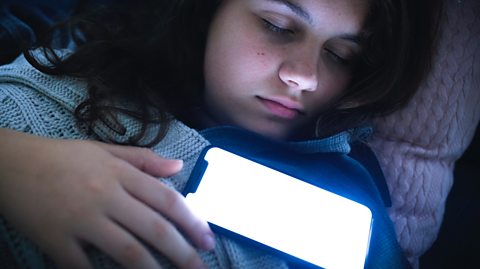By Dr Sandi Mann - Senior Psychology Lecturer at the University of Central Lancashire.

It’s time for that annual tradition where we take stock of our lives and set goals for the year ahead. Whether it’s a pledge to lead healthier lives, do more exercise or become meat-free, that post-binge feeling after the excesses of Christmas encourages us to start the new year with the best of intentions for a ‘better life.’
But with so many of us abandoning our carefully planned targets within weeks of singing ‘Auld Lang Syne’, you may be wondering if it’s a good idea to be encouraging our children to make their own resolutions.
Is this annual ritual of self-reflection good for their developing minds – or merely setting them up for failure?

First, the benefits of resolutions

One of the big pluses of the annual January pledge fest is that it forces us to examine our flaws and weaknesses and exert some much-needed self-control. Of course, this comes hot on the tail of the time of year where self-indulgence is positively encouraged, so it offers an opportunity to provide a bit of balance. Learning control of our own bodies, minds and behaviour is a key part of growing up – the self-centred baby who cannot control their body much less their actions, must evolve into a self-sufficient adult who is fully responsible for their own behaviour.
New Year’s resolutions can help teenagers on that journey by helping them identify where more effort is needed – and setting targets to get to where they want to be. Whether it is a desire to be kinder, to eat more healthily or to do homework on time, these all involve self-reflection, acknowledging weaknesses and a desire to overcome them. This annual pause allows young people to press ‘reset’ to try to ensure that they are on course to develop into the kind of adults they hope to become.
The very act of setting goals and following them through can be helpful too, irrespective of what the target behaviour actually is. Goal-setting helps young people plan ahead, to understand that some things take time to achieve and to develop ‘stickability’ – the ability to stick with something even if it seems hard to reach.
What happens if resolutions aren’t met?

One issue with young people setting New Year’s resolutions is the same as with everyone else – too many pledges seem to be dropped within weeks or even days of the last New Year’s Eve firework. Teens who fall into a cycle of making self-improvement promises on January 1st and forgetting all about them until the following New Year are not reaping any benefits – in fact they are picking up unhealthy habits that can last a lifetime. They are merely learning that promises are there to be broken, that attempts at self-improvement never last and that self-reflection is not really a worthwhile pursuit.
Worse than that, they can learn that setting targets is pointless because they will never have the resilience and staying power to follow them through. This helps them develop unhealthy core beliefs about themselves – ‘I am a quitter’ or ‘If something is hard, I give up’. Obviously these are not the messages we want our children to internalise when we encourage them to set their New Year challenges.
So how can we increase the chances of resolutions sticking?
Psychologists can use motivation models to predict how long resolutions are likely to last. The more we believe in the benefits of the change we are advocating, the higher the chances of our sticking to them – but the more we believe those changes will cost us (in terms of effort for example), the less likely we are to stick to them.
In addition, our chances of sticking to change are increased by our own self-belief that we can do it (this is termed ‘self-efficacy’), as well as having plenty of ‘cues to action’ that remind us to stick to our plans.
So if we want our children to stick to their pledges, for example, to recycle more, they need to really believe that this is important for the planet or for their local environment, they need to see the benefits it will bring them or others (for example, less pollution or local landfill) and there needs to be minimal effort or cost (a recycling bin in their room is easier than one in the driveway). Setting smaller, more attainable targets (for example, to recycle their drink cans rather than everything) can increase their self-belief and having as many reminders around can help too (signs, recycling receptacles, articles etc).

Anticipating barriers in advance is also an important skill for them. One such barrier that can interfere with plans can be the overly ambitious resolutions set by social media users. Tik Tok or Instagram style super-resolutions involving changing the world or transforming your body can make smaller-scale targets seem less worthy and even instil a kind of self-improvement FOMO. But discussing the unrealistic nature of attention-grabbing social media pledges with your teens can help them to realise how unattainable they are.
Failing to meet targets is not the only worry with young people’s resolutions – sometimes we worry that they will meet their targets, especially when the pledge is unhealthy or even dangerous. Crash dieting or unhealthy restrictive eating pledges for example, can be a concern. Social media can again play a significant role here, so keep an eye out for which ‘influencers’ they follow and what messages they are spreading in terms of grand new year gestures.
What about those joint parent/child pledges?
There’s many a parent who have decided on joint family projects (recycling is a good example) or even ‘you scratch my back and I'll scratch yours’ promises – ‘you tidy your room every week and I will stop biting my nails.' These are not ideal because they can set the young person up to failure. For example, family projects need every family member to be onboard – unlikely to happen with the different personalities involved. If one person fails, the whole project is thrown into jeopardy.
One risk of these 'favour for a favour' promises can be that the responsibility for the adult pledge is passed onto the young person. For something as important as say, quitting smoking, this could be a heavy burden. Even for less serious pledges, tying their resolutions so closely to your own doubles the risk of failure.Far better to let each person be responsible for themselves. This teaches self-reliance and self-responsibility.
Being the role model

In an ideal world we will always be trying to be good role models for our children and that shouldn’t change on New Year’s Day. If they see us stuck in endless cycles of starting strict diets on January 1st only to be tucking into the pies again by January 25th, they learn that human weakness prevails – and are likely to internalise that message about their own frailties.
So if we set our own resolutions, we should follow the same guidelines about making them realistic and attainable so that they are less likely to fall at the first hurdle (perhaps this is why dry January-type pledges work so well – a month is far more attainable than ‘for ever’).
It’s all about balance
Encouraging resolutions then, can be worthwhile, but only if the pledges are realistic, targeted and your teen owns them and buys into them. There are pitfalls waiting to trip you, and them, up. But if you navigate the path carefully, your teen may well reap the benefits this New Year – and the whole of 2022.

Parents' Toolkit
Fun activities, real-life stories, wellbeing support and loads of helpful advice - we're here for you and your child.

Can’t sleep, won’t sleep? Five ways to get your child’s sleep back on track
Advice and tips on helping your kids into healthier sleep patterns

Does willpower really exist?
There may be more behind keeping - or ditching - those new year resolutions

How to manage your child’s online world without clashing
Children and teens spend lots of time online for school and leisure, which can be a worry for parents. Here's some advice on managing your child’s screen time.


